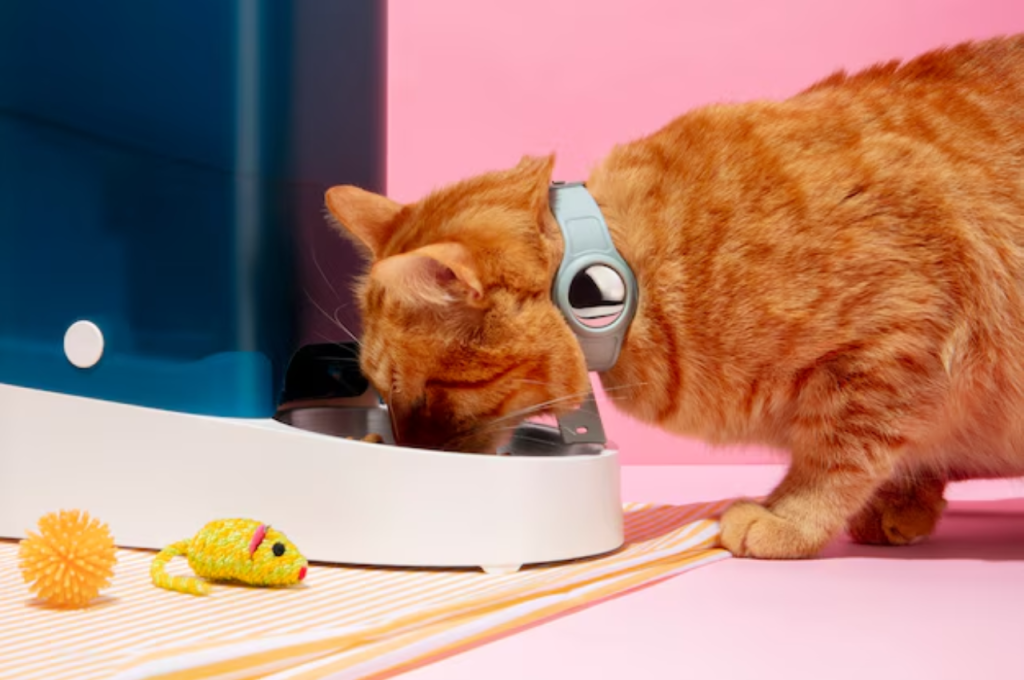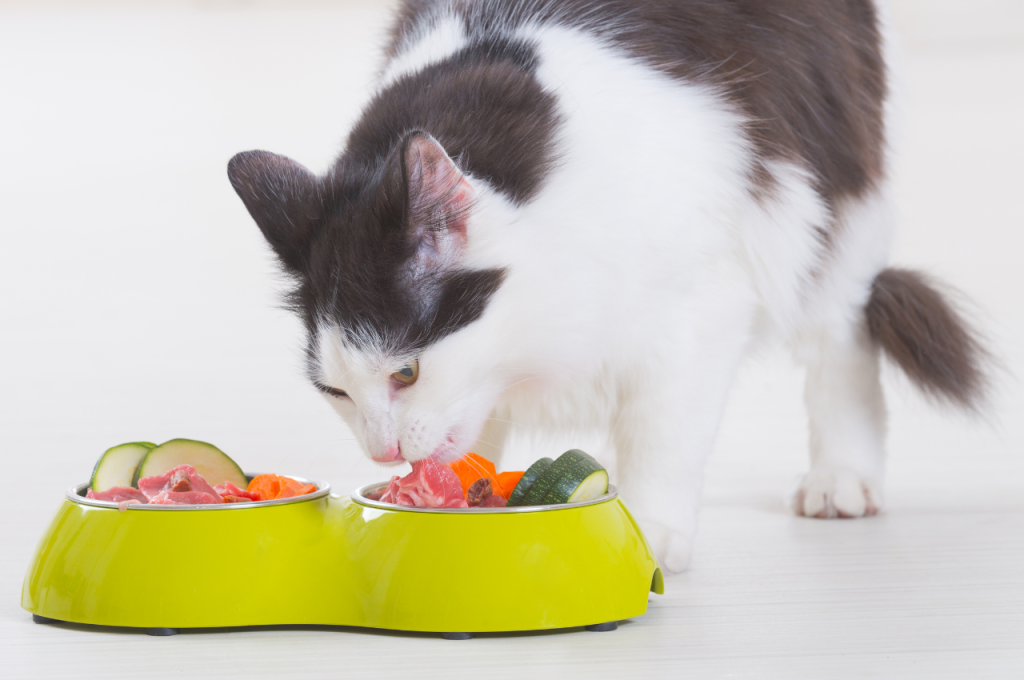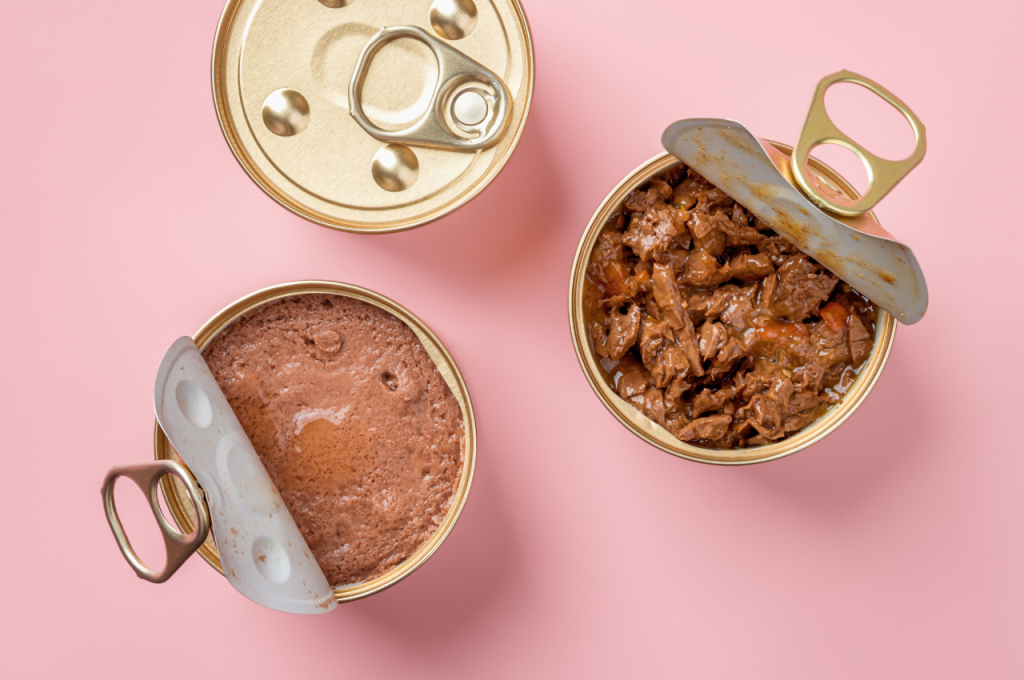The favorite cat food varies depending on the cat’s individual preferences and dietary needs. Some popular options include Royal Canin, Hill’s Science Diet, and Blue Buffalo.
These brands offer a variety of flavors and formulations to suit different cats’ tastes and health requirements. Royal Canin is known for its breed-specific formulas, while Hill’s Science Diet focuses on scientifically backed nutrition. Blue Buffalo emphasizes natural ingredients and grain-free options.
It’s essential to consult with your vet to determine the best cat food for your feline companion. By understanding your cat’s needs and preferences, you can provide them with the ideal diet for a happy and healthy life.
The Importance of Quality Nutrition for Cats
Nutrition is crucial for cats’ well-being, which is why finding the perfect cat food is essential. Quality ingredients tailored to their dietary needs, such as real meat and essential nutrients, make for a favorite choice among discerning felines. Opting for high-quality cat food ensures their health and happiness.

Key Nutritional Needs of Cats
Cats require protein as a primary nutrient for their overall health, growth, and energy. Protein is crucial for their muscle development, tissue repair, and overall health. Without sufficient protein in their diet, cats may experience weakness, lethargy, and other health issues.
Impact of Nutrition on Cat Health
A balanced diet affects a cat’s coat, energy levels, and overall well-being significantly. The Importance of Quality Nutrition for Cats: Cats are obligate carnivores, requiring specific nutrients like protein, essential fatty acids, and vitamins in their diet. Focusing on the nutrient needs of cats is crucial to promote their health and vitality.
Understanding Cat Food Labels
Cat food labels can be confusing and filled with unfamiliar terms and nutritional jargon. However, understanding these labels is crucial for ensuring that you’re providing your feline companion with a balanced and nutritious diet.
Decoding Ingredient Lists
Cat food labels provide insight into the ingredients used, helping pet owners make informed choices. These labels offer valuable information about the ingredients used in the food, including the source of protein, carbohydrates, fats, vitamins, and minerals.
Significance of Aafco Approval
AAFCO approval ensures that the cat food meets the nutritional standards set for pets’ well-being.
Popular Types of Cat Food
Cats have individual preferences when it comes to food, and as a cat owner, it’s important to choose the right type of food for your furry friend. In this article, we’ll explore the popular types of cat food – dry, wet, and raw. Each type has its benefits and considerations, so let’s delve into the details to help you make an informed decision for your cat’s diet.
Dry Cat Food
Dry cat food, also known as kibble, is a convenient and economical option for many cat owners. It has a longer shelf life and can help promote dental health by reducing tartar buildup. However, it’s crucial to ensure that your cat has an adequate water intake when consuming dry food, as it may not provide sufficient hydration on its own.
Wet Cat Food
Wet cat food contains higher moisture content, making it a good choice for cats who need additional hydration. It typically comes in cans or pouches and offers a variety of flavors and textures. Some cats prefer the taste and aroma of wet food, and it can be beneficial for cats with dental issues or those prone to urinary tract problems.
Raw Cat Food
Raw cat food is a diet that mimics what a cat might eat in the wild, consisting of raw meat, bones, and organs. Proponents of raw feeding believe it can improve a cat’s coat, digestion, and overall health. However, it’s important to consult with a veterinarian before transitioning your cat to a raw diet to ensure it meets all nutritional requirements and is prepared safely.
Factors to Consider When Choosing Cat Food
When it comes to choosing cat food, there are several factors you should consider to ensure that your feline friend receives the nutrition they need. These factors include life-stage-specific formulas, allergies, and dietary restrictions, and a preference for organic or natural ingredients. By taking these factors into account, you can make an informed decision about which cat food is the best fit for your pet.
Life Stage-specific Formulas
Feline nutrition needs vary depending on their life stage. Kittens, adult cats, and senior cats each have unique dietary requirements that should be met by their food. Kittens, for example, require a higher amount of protein and fat to support their growth and development. Adult cats typically require a well-balanced diet, while senior cats may benefit from a cat food formula that addresses age-related issues such as joint health. When selecting cat food, consider the life-stage-specific formulas available to ensure your cat’s nutritional needs are met.
Allergies and Dietary Restrictions
Just like humans, cats can have food allergies and dietary restrictions. Common allergens for cats include chicken, fish, and grains. If your cat has a known allergy or intolerance, it’s important to choose a cat food that is free from these ingredients. Additionally, some cat owners choose to feed their pets a hypoallergenic or limited-ingredient diet to minimize the risk of allergic reactions. If your cat has specific dietary restrictions, consult with your veterinarian or a feline nutritionist to find a cat food that meets their needs.
Preference for Organic or Natural Ingredients
Many cat owners prefer to feed their pets cat food made with organic or natural ingredients. Organic cat food is made without the use of synthetic pesticides, antibiotics, or genetically modified organisms (GMOs). Natural cat food, on the other hand, doesn’t contain any artificial colors, flavors, or preservatives. These options may be beneficial for cats with sensitivities or for those whose owners prefer to feed them a more natural diet. When considering cat food options, check the labels for organic or natural ingredients to support your preference for a more wholesome choice.

The Debate on Homemade Cat Food
As cat owners, we all want to provide the best nutrition for our furry friends. With the growing concerns about the quality of commercial cat food, many cat owners are turning to homemade cat food as an alternative. The debate on homemade cat food centers around the benefits and drawbacks of feeding your cat homemade meals. In this article, we will explore the pros and cons of homemade cat food and provide guidelines for creating balanced homemade meals for your feline companion.
Pros and Cons of Homemade Cat Food
Homemade cat food offers several advantages over commercial cat food. Here are some of the key benefits:
- Customized Nutrition: By preparing your cat’s meals at home, you have control over the ingredients, ensuring that they receive a balanced diet tailored to their specific needs.
- Fresh and Natural Ingredients: Homemade cat food allows you to use fresh, wholesome ingredients without any artificial additives or preservatives.
- Reduced Risk of Allergies: Some cats may develop allergies or sensitivities to certain ingredients found in commercial cat food. Creating homemade meals allows you to eliminate these potential allergens.
- Bonding Experience: Preparing meals for your cat can strengthen the bond between you and your furry companion, creating a sense of love and care.
However, it is important to consider the potential drawbacks of homemade cat food as well:
- Nutritional Imbalance: Without proper knowledge and understanding of feline nutrition, it is easy to accidentally create an unbalanced homemade diet that lacks essential nutrients.
- Time and Effort: Preparing homemade cat food can be time-consuming and requires additional effort compared to simply opening a can or serving kibble.
- Potential Contamination: Improper handling and storage of homemade cat food can result in bacterial contamination, leading to health problems for your cat.
Guidelines for Creating Balanced Homemade Meals
If you decide to feed your cat homemade meals, it is crucial to follow these guidelines to ensure they receive a balanced diet:
- Consult with a Veterinarian: Seek professional guidance to determine your cat’s specific dietary needs and to receive recommendations for appropriate ingredients and portion sizes.
- Include a Variety of Protein Sources: Cats require high levels of animal-based proteins, so incorporate different sources such as chicken, fish, and beef into their meals.
- Add Essential Nutrients: Include vital nutrients like taurine, omega-3 fatty acids, and vitamins to support your cat’s overall health and well-being. A veterinarian can advise on suitable supplements.
- Balance Meat and Plant Ingredients: While cats are obligate carnivores, adding a small amount of plant-based ingredients can provide fiber and other essential nutrients.
- Food Safety: Practice proper hygiene when handling and storing homemade cat food to minimize the risk of bacterial contamination. Refrigerate leftovers promptly and dispose of any food that has been left out for too long.
By adhering to these guidelines and regularly consulting with your veterinarian, you can ensure that your homemade cat food provides the necessary nutrition for your feline companion.
Unveiling The Ultimate Favourite Cat Food
Unveiling the Ultimate Favorite Cat Food: When it comes to our beloved feline friends, their nutrition is of utmost importance. Finding the ultimate favorite cat food can be a challenging task for pet owners. Not all cats have the same tastes and nutritional needs, so it’s essential to explore various options. Let’s take a closer look at the top-recommended brands, specialized formulas for health conditions, and the factors that contribute to a feline’s preference.
A Look At Top Recommended Brands
When selecting the ultimate favorite cat food, it’s crucial to consider reputable brands known for their quality and balanced nutrition. Royal Canin, Hill’s Science Diet, and Purina Pro Plan are among the top recommended brands catering to a variety of feline preferences and dietary requirements.
Understanding Specialized Formulas for Health Conditions
Cats may develop specific health conditions that require specialized nutrition. For instance, Royal Canin Veterinary Diet offers targeted formulas for cats with urinary issues, digestive sensitivities, and other health concerns. These specialized formulas are designed to address the unique needs of cats with particular health conditions.
Factors Contributing to Feline Preference
Feline preference for a certain type of food can be influenced by numerous factors. Texture, aroma, and palatability play significant roles in a cat’s food preference. Additionally, individual cats may have unique dietary requirements based on their age, activity level, and overall health. Understanding these factors can help pet owners choose the best food for their feline companions.
Ensuring A Well-balanced Diet for A Happy Feline
To keep your feline friend happy and healthy, it is crucial to ensure they receive a well-balanced diet. Good nutrition plays a vital role in maintaining your cat’s overall well-being and longevity. By providing proper nourishment and care, you can help your cat thrive and live a vibrant life.
The Role of Regular Veterinary Check-ups
Regular veterinary check-ups are essential for monitoring your cat’s health and ensuring they are receiving the right nutrients. Your vet can guide the best diet for your cat’s specific needs and detect any potential health issues early on.
Supplementing with Treats and Snacks
Supplementing your cat’s diet with treats and snacks can add variety and enjoyment to their meals. However, it’s important to choose healthy options that complement their main diet and do not lead to overfeeding.

Conclusion
That’s why choosing the right cat food is essential for your furry friend’s health and happiness. Finding your cat’s favorite food may require some trial and error, but it’s worth it for their well-being. With the right nutrition, your cat can thrive and live a long, healthy life.
